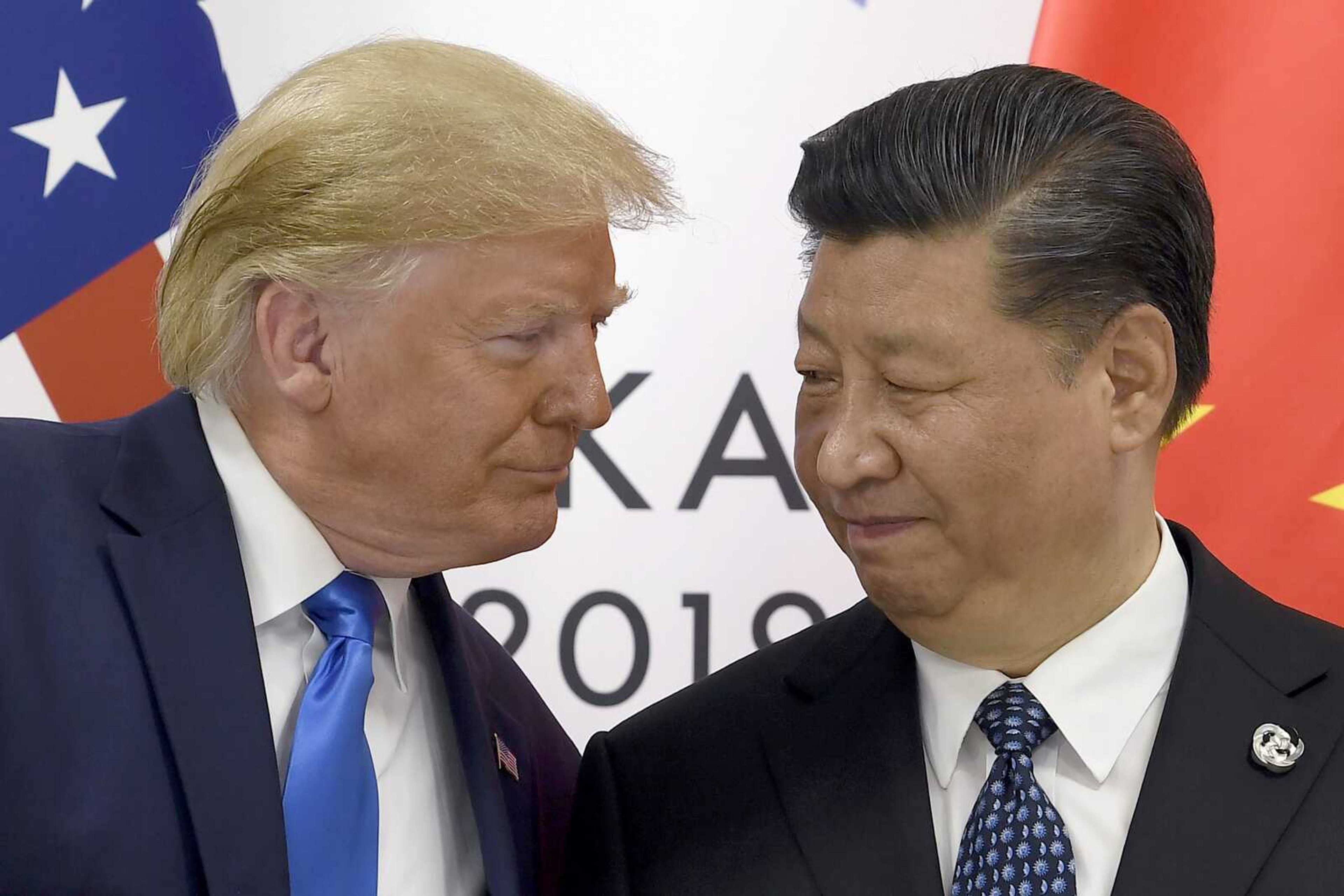Trade war escalates with China, U.S. actions
WASHINGTON -- Escalating his trade war with China, President Donald Trump bumped up his tariffs on Chinese imports Friday, lashing back after Beijing raised taxes on U.S. products. In a tweet, Trump said he would be raising planned tariffs on $300 billion in Chinese goods from 10% to 15%. The Office of the U.S. Trade Representative also said existing tariffs on another $250 billion in Chinese imports would go from 25% to 30% Oct. 1 after receiving feedback from the public...
WASHINGTON -- Escalating his trade war with China, President Donald Trump bumped up his tariffs on Chinese imports Friday, lashing back after Beijing raised taxes on U.S. products.
In a tweet, Trump said he would be raising planned tariffs on $300 billion in Chinese goods from 10% to 15%. The Office of the U.S. Trade Representative also said existing tariffs on another $250 billion in Chinese imports would go from 25% to 30% Oct. 1 after receiving feedback from the public.
The move came hours after Beijing said it would hike tariffs on $75 billion in U.S. imports, escalating a conflict over trade and technology threatening to tip a fragile global economy into recession.
Though expected, the president appeared caught off-guard by China's action Friday and was angry when he gathered with his trade team in the Oval Office before departing for France, according to two people familiar with the meeting who spoke to AP on condition of anonymity because they were not authorized to disclose closed-door conversations.
Officials, including U.S. trade representative Robert Lighthizer and adviser Peter Navarro, discussed potential retaliatory options. Treasury Secretary Steve Mnuchin, returning from vacation, joined by phone.
Earlier Friday, the president said he "hereby ordered" U.S. companies to seek alternatives to doing business in China.
The rising tensions between the world's two biggest economies sent the stock market into a tailspin. The Dow Jones Industrial Average closed down 643 points -- before Trump announced the new tariffs.
Tariffs on $300 billion in Chinese imports are scheduled to go into effect in two stages -- Sept. 1 and Dec. 15. Originally scheduled to be 10%, they will now be 15%.
Trump's latest escalation will impose a burden on many American households. Even before he announced an increase Friday, J.P. Morgan had estimated Trump's tariffs would cost the average household roughly $1,000 a year if he proceeded with his threats.
Businesses large and small joined in a chorus of opposition to the intensifying hostilities.
"It's impossible for businesses to plan for the future in this type of environment," said David French, senior vice president of government relations at the National Retail Federation. "The administration's approach clearly isn't working, and the answer isn't more taxes on American businesses and consumers. Where does this end?"
By adding onto the Chinese imports he's already targeted, Trump is extending his tariffs to just about everything China ships to the United States.
China responded Friday with new tariffs of 5% and 10% on $75 billion of U.S. products.
Like Trump's, the Chinese tariffs will be imposed in two batches -- Sept. 1 and then on Dec. 15.
China will also go ahead with previously postponed import duties on U.S.-made autos and auto parts, the Finance Ministry announced.
On Friday, Trump tweeted, "Our great American companies are hereby ordered to immediately start looking for an alternative to China, including bringing... your companies HOME and making your products in the USA."
The White House did not immediately respond to questions about what authority the president believes he has to order private companies to change their business practices.
Jay Foreman, CEO of Basic Fun!, a Boca Raton, Florida, toy company importing from China said Trump's statements were outrageous.
It was an "unprecedented statement for a president to make to private business when there is no national security issue involved," he said.
The trade war between the U.S. and China has been rattling financial markets, disrupting international trade and weakening prospects for worldwide economic growth.
Washington accuses China of using predatory tactics -- including outright theft of U.S. trade secrets -- in an aggressive drive to turn itself into a world leader in cutting-edge technologies such as artificial intelligence and electric cars.
Twelve rounds of talks have failed to break the impasse, though more negotiations are expected next month. Chinese leaders have offered to alter details of their policies but are resisting any deal that would require them to give up their aspirations to become a technological powerhouse.
The two countries are also deadlocked over how to enforce any agreement.
Connect with the Southeast Missourian Newsroom:
For corrections to this story or other insights for the editor, click here. To submit a letter to the editor, click here. To learn about the Southeast Missourian’s AI Policy, click here.









